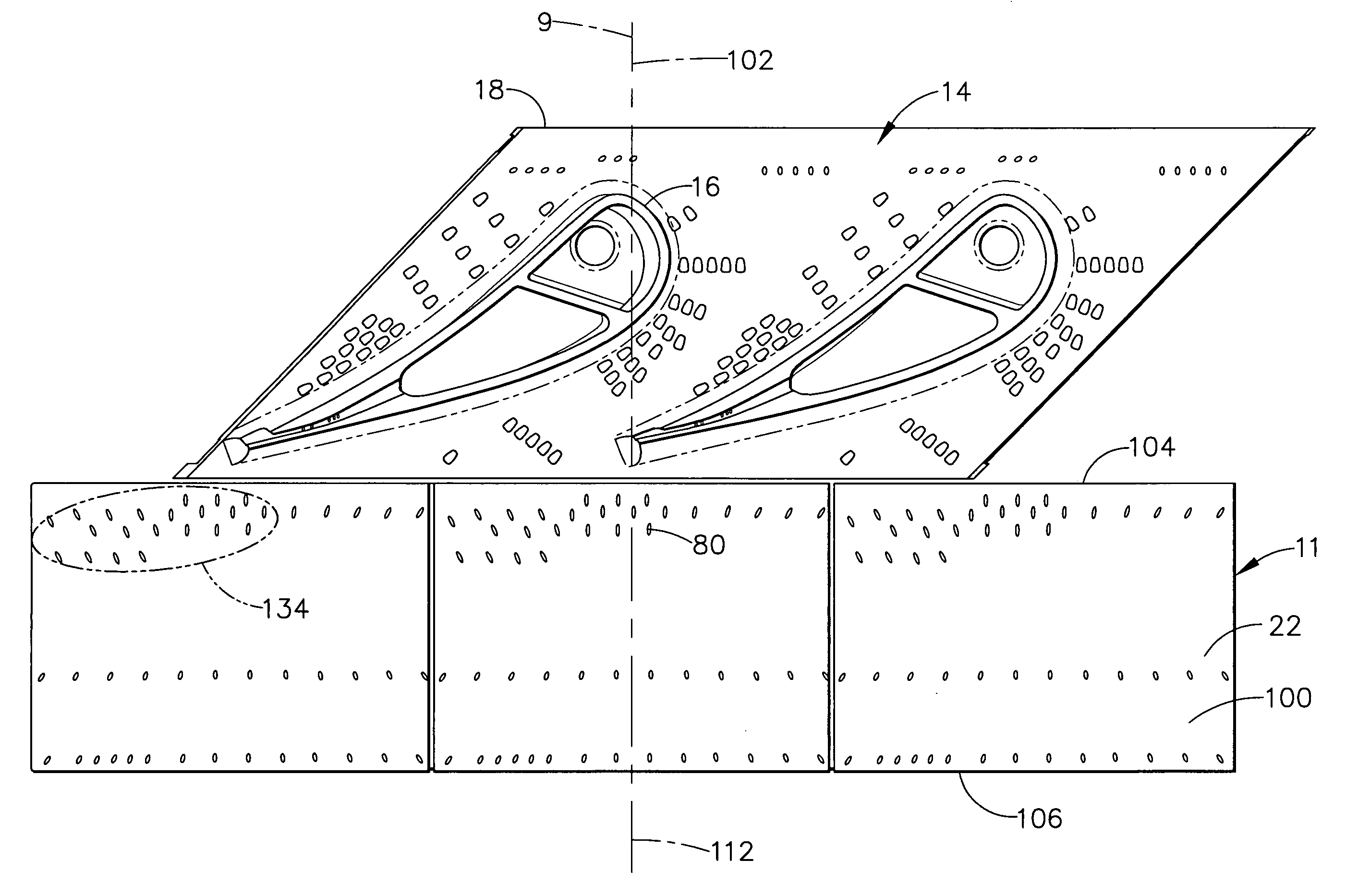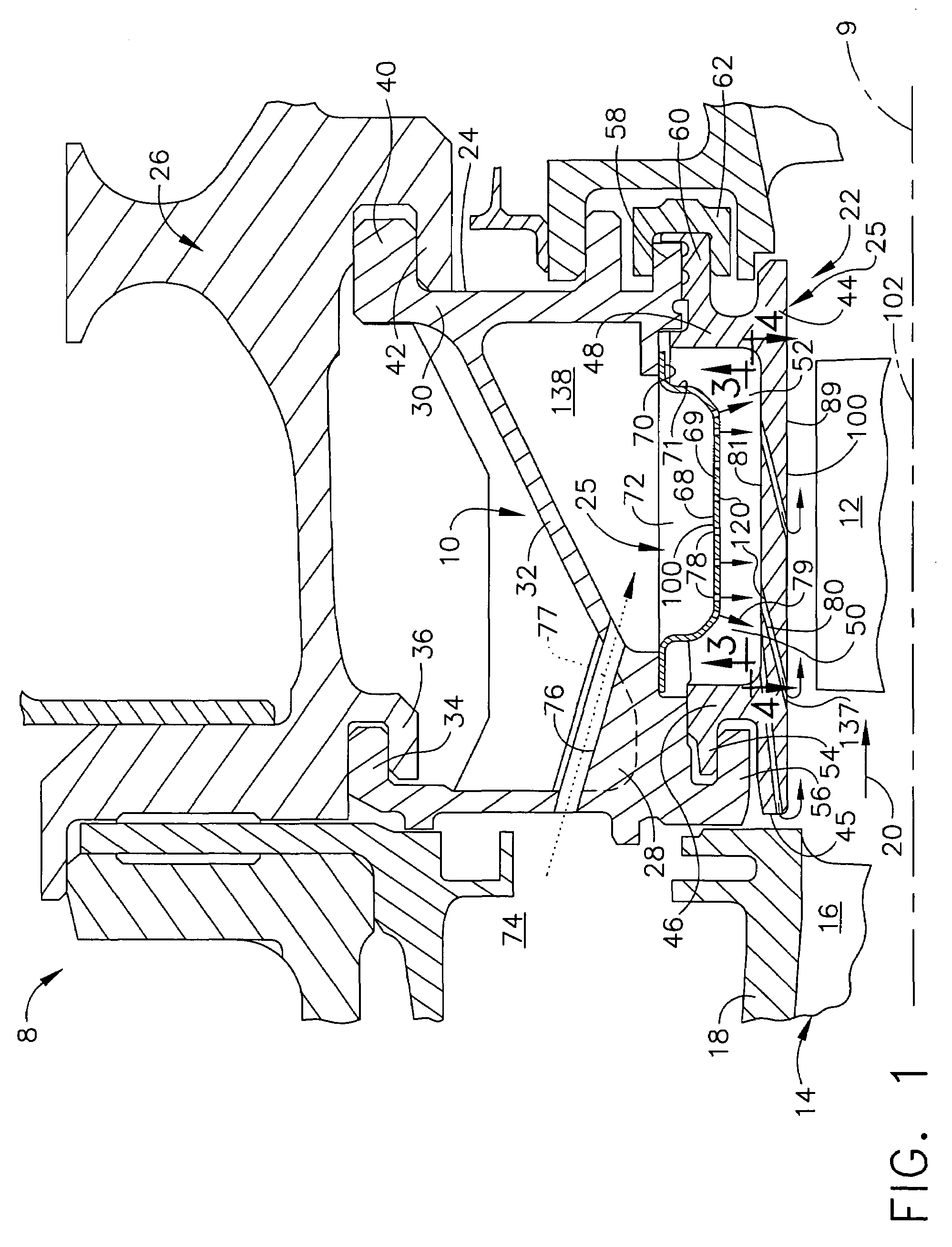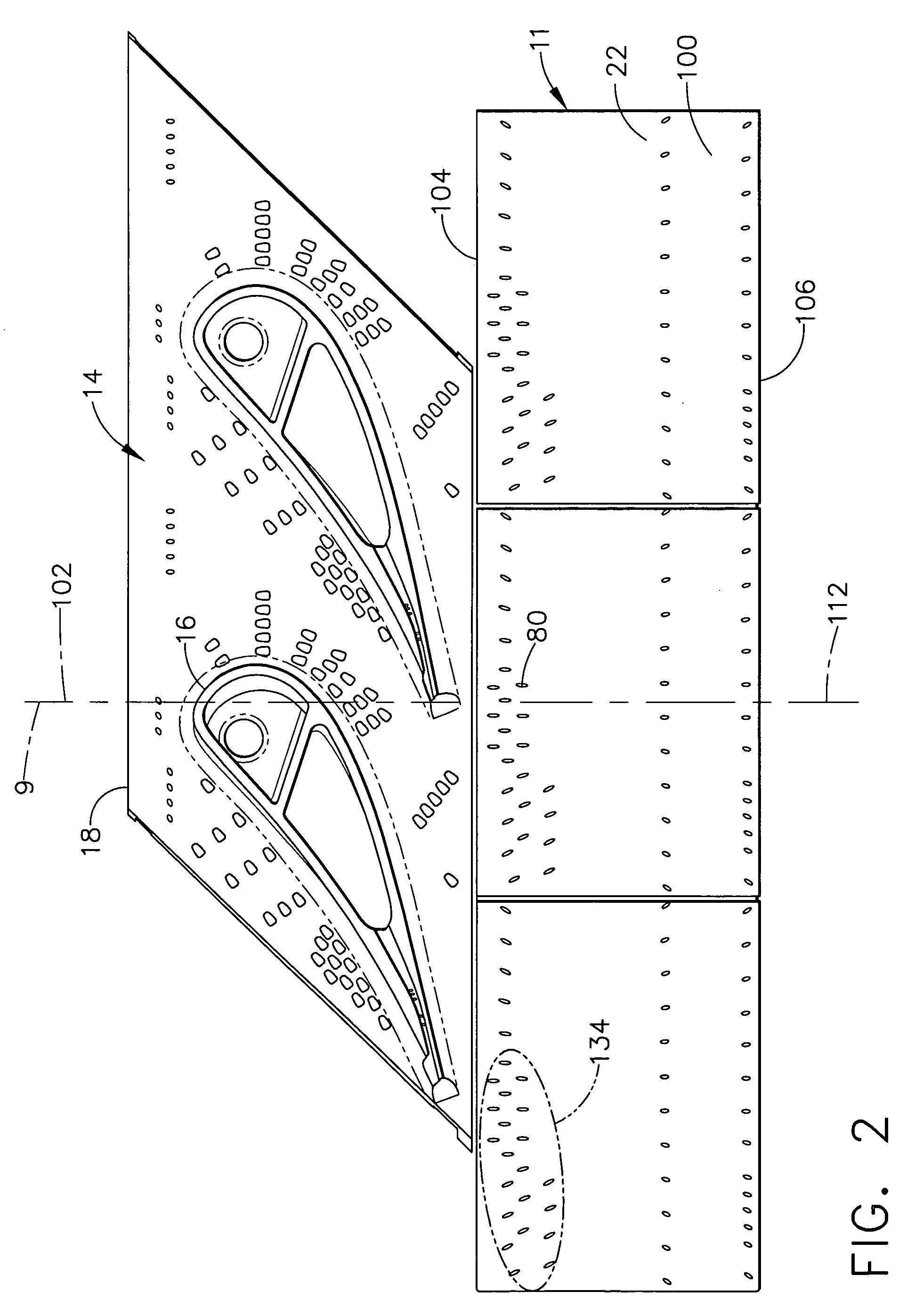Turbine shroud asymmetrical cooling elements
a turbine shroud and cooling element technology, applied in the direction of liquid fuel engines, machines/engines, efficient propulsion technologies, etc., can solve the problems of difficult cooling, limited blade life, and abrasion wear, so as to reduce local pressure gradient, and reduce the degree of circumferential hot streaking
- Summary
- Abstract
- Description
- Claims
- Application Information
AI Technical Summary
Benefits of technology
Problems solved by technology
Method used
Image
Examples
Embodiment Construction
[0021]Illustrated in cross-section in FIG. 1 is a portion of a gas turbine engine high pressure turbine section 8 having a turbine shroud assembly 10 disposed in closely surrounding radial relation with turbine blades 12. A turbine nozzle 14 includes a plurality of fixed vanes 16 affixed to an outer band 18 for directing a core engine gas stream 20 from a combustor (not shown) through the high pressure turbine section. The shroud assembly 10 includes an annular shroud 11 having an annular array of arcuate shroud segments 22 which are held and supported in position by an annular array of arcuate hanger segments 24, all of which are circumferentially disposed about an engine centerline axis 9. The arcuate hanger segments 24 are in turn supported by an engine outer casing 26.
[0022]Each hanger segment 24 includes a forward or upstream rail 28 and an aft or downstream rail 30 and a body panel 32 therebetween. The upstream rail 28 has a rearwardly extending aft flange 34 which radially ov...
PUM
 Login to View More
Login to View More Abstract
Description
Claims
Application Information
 Login to View More
Login to View More - R&D
- Intellectual Property
- Life Sciences
- Materials
- Tech Scout
- Unparalleled Data Quality
- Higher Quality Content
- 60% Fewer Hallucinations
Browse by: Latest US Patents, China's latest patents, Technical Efficacy Thesaurus, Application Domain, Technology Topic, Popular Technical Reports.
© 2025 PatSnap. All rights reserved.Legal|Privacy policy|Modern Slavery Act Transparency Statement|Sitemap|About US| Contact US: help@patsnap.com



